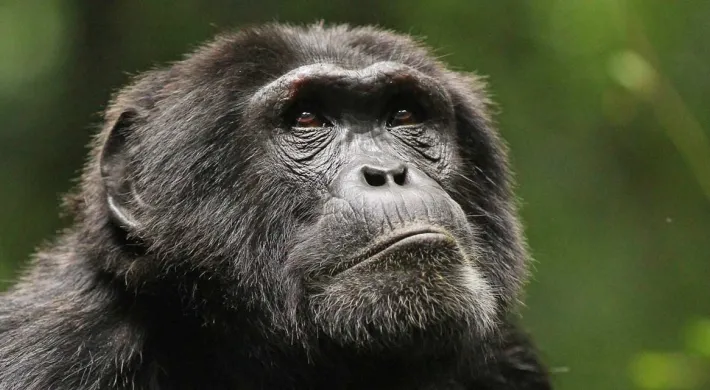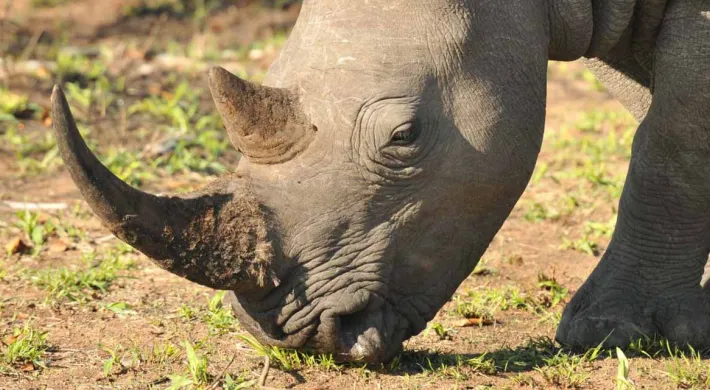Written by Drew T. Cronin, Associate Curator of International Conservation, North Carolina Zoo
Over the course of this year, we've recognized how critical frontline workers are and how we rely on these individuals' incredible commitment. Although you may not have thought about it, the same is true for conservation, where rangers and other frontline practitioners work day-in and day-out to protect wildlife. In areas around the world, from your local state park to the iconic African savannahs, the animals and habitats that we know and love rely on rangers for their protection.
Unfortunately, rangers are often asked to do the impossible – protect large areas while enduring grueling conditions and significant risks, all with minimal resources and support. As a result, being a ranger is among the world's most dangerous careers, with more than 1,000 rangers dying in the line of duty over the last ten years.
Despite increasing global commitments to protect areas and the global conservation community's efforts, many protected areas face significant human pressures. They have declining wildlife populations within their boundaries, and fewer than 25% of protected areas globally are effectively managed or have adequate financial resources and staff.
Pictured Above: Rich Bergl leading Namibian ranger training
Even those with adequate staff may not meet conservation targets if they're poorly managed or lacking other resources. Rangers play a critical role as the primary deterrent against illegal activities at many sites and are fundamental for the success of protected. Unfortunately, rangers worldwide are under-trained, under-equipped, and under-valued.
I remember the first rangers I ever worked with in Central Africa. After nearly ten years, an official ranger presence was a 'win' since previously there had been no rangers assigned to the protected area where we worked – a global biodiversity hotspot home to 11 primates, nine of which are found nowhere else in the world. When they arrived for a month in the forest, they were in loafers and dress pants, were unarmed, and had no equipment or provisions, but they were tasked with enforcing the law in difficult conditions against armed poachers. Nevertheless, they were committed to the job, did what they could despite their circumstances, and even made some seizures of illegally killed animals (i.e., bushmeat).
Pictured Above: Drew Cronin training Namibian ranger
Therefore, it's important to understand the challenges faced by those tasked with achieving conservation on the ground. A common assumption is conservation fails due to a lack of will or commitment from those on the ground. However, in my experience, it's often those on the ground that are the most committed to conservation. Poor conservation outcomes are more typically a consequence of the often-combined effects of not enough staff, limited resources, and poor oversight.
Much of the work we do at the North Carolina Zoo tries to bridge these gaps, both with the partners we support on the ground in Africa and globally with the SMART Partnership. The ability of rangers and other frontline conservationists to respond effectively to an increasing and ever-adapting array of threats (e.g., poaching), requires information on where the threats are occurring and establishing adequate capacity in place to address them. By helping our partners build their staff capacity, deploy SMART software, and implement an adaptive, data-driven approach, we are helping to improve conservation area management's effectiveness by empowering practitioners to make better use of available resources.
Pictured Above: Zambian rangers at muster
One example of how we've done this is through our partnership with the Namibian Ministry of Environment, Forestry, and Tourism to help implement SMART in five National Parks in northeastern Namibia. Over the last year, we worked with our partners to develop a customized SMART system to standardize and streamline data collection, analysis, reporting across all the parks, and trained rangers and managers in each park to use it effectively. This improved day-to-day management and operations, and also made reporting at the park and regional level much more efficient, with automated reports generated after each patrol and each month in the nationally mandated format. In addition to helping to improve management, we have also been able to provide critical funding to bridge shortfalls resulting from the loss of tourism revenue due to the coronavirus. This has ensured that vehicles receive the repairs they need and that parks have the necessary fuel for regular patrols to continue protecting wildlife.
World Ranger Day celebrates the commitment and service of those working on the front lines of conservation. It's an opportunity to honor those who have lost their lives in the line of duty. Today, all of us at the North Carolina Zoo are proud to stand with rangers, and we look forward to continuing our efforts to support them around the world.







